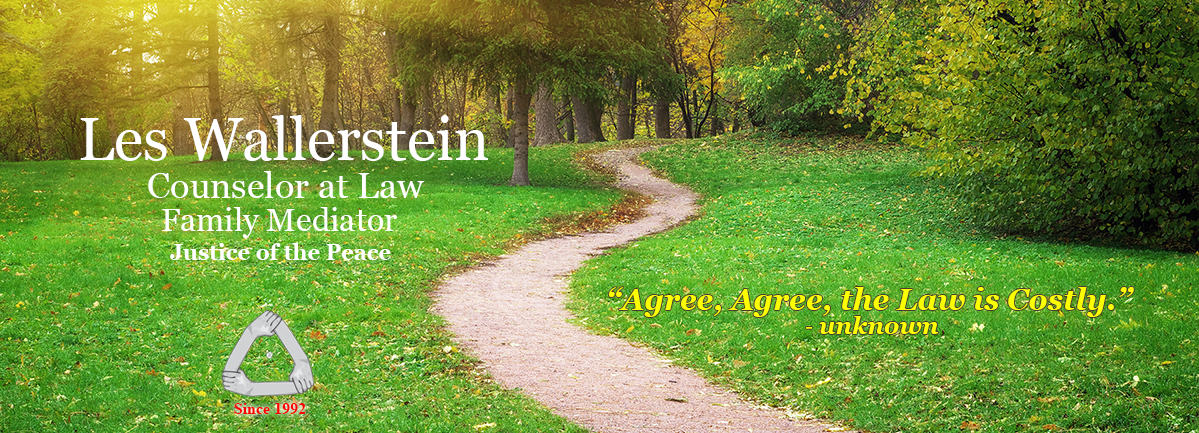Benefits
Economical
The total cost of divorce mediation is usually less than half the cost of one spouse’s lawyer in a litigated divorce. The reason is simple. In divorce litigation each party hires an attorney to bargain on his or her behalf. Then each spouse pays his or her lawyer to negotiate with the other spouse’s attorney. Then each spouse pays his or her attorney to review and explain what the lawyers negotiated.
By contrast, divorce mediation clients negotiate directly with one another. Through face to face negotiations the role of attorneys is limited and legal costs are dramatically reduced. By cutting the cost of divorce, mediation preserves more of the marital assets for the parties and their children after the divorce.
Confidential
The confidentiality of mediation is protected by Massachusetts law, (Chapter 233, Section 23C). This statute protects any communication made in the course of the mediation. It includes all memoranda, written materials and the mediator’s case file.
If the mediation fails the mediator will not become a witness for or against either spouse. In addition, neither spouse is permitted to disclose any confidential communications or materials that were made in the course of the mediation in any judicial proceeding.
Confidentiality under this statute requires that the parties sign an agreement to mediate with a qualified mediator. My mediation contract makes one exception to the rule of confidentiality. That sole exception applies to abuse as defined by Massachusetts law, Chapter 209A. The reason for this exception is that no one can freely negotiate while in fear of abuse.
Enforceable
A spouse who violates a separation agreement after it was found to be “fair and reasonable” in court may be held liable for breach of the contract AND found in contempt of court. Breach of contract can generate financial compensation (including attorneys fees) while contempt of court can generate monetary and legal sanctions- including imprisonment. A separation agreement found to be “fair and reasonable” in court is as enforceable as any other court order, and as a contract
Stability
Every year tens of thousands of ex-spouses return to court to contest some aspect of their divorce. Divorce mediation is a largely self-determined process that encourages divorcing couples to set their own goals and to allocate their own resources. By personally participating in the creation of their own agreement, couples in divorce mediation maximize their control over the dissolution of their marriage. This reduces the probability of post-divorce disputes and increases the likelihood of post-divorce compliance.
Relief
When couples achieve a fair and reasonable agreement, their own feelings of frustration and helplessness are often relieved. The greater the ability of couples to work together as parents, the less their children suffer in the divorce. Divorce mediation is not therapy but it can have therapeutic benefits.
Even after a litigated divorce has begun, both spouses can decide to “freeze” the litigation and mediate their divorce. Divorcing couples who successfully mediate spare themselves and their families the agony that characterizes an adversarial divorce.
